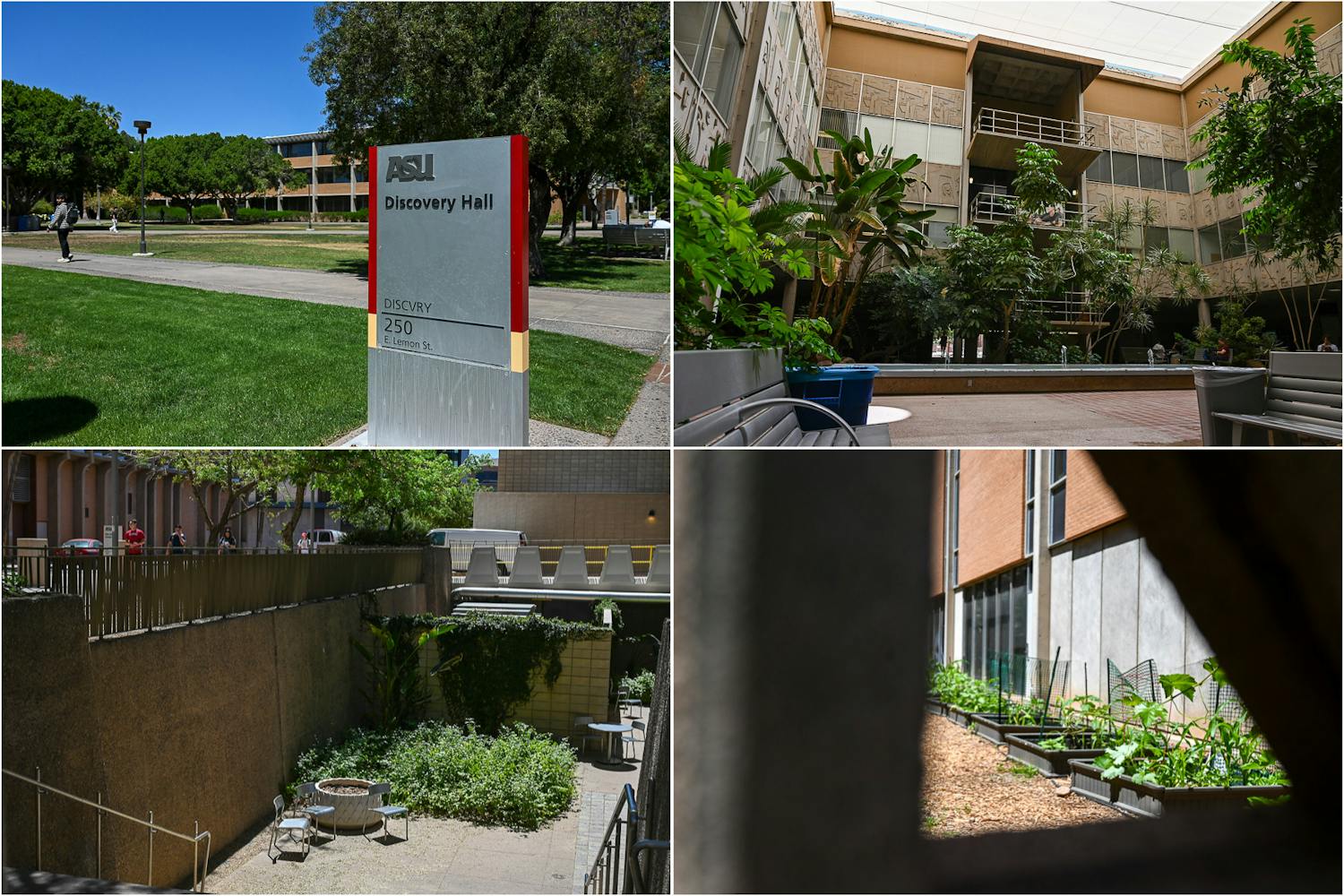The Sandra Day O’Connor College of Law is creating the nation's first programs in Indian Gaming and Tribal Self-Governance for its Indian Legal Program. Gaming refers to matters concerning casinos and gambling on Native American property for economic benefit.
The programs are founded and will be directed by Ann MarieBledsoe Downes and Lawrence Roberts. Lawrence will serve as executive director of the programs.
Bledsoe Downes, who is a part of the Winnebago tribe of Nebraska, and Roberts, an enrolled member of the Oneida Nation of Wisconsin, said their priority is to serve the needs of tribes across the country through these programs.
“We want to make sure that a student who graduates from here is well equipped to do the jobs (for tribes)," Roberts said, adding that he wants to teach all people, whether they work for the government or a private company, how to work with tribes.
Bledsoe Downes said both she and Roberts hope to establish advisory committees for the programs, which will include representatives from various Arizona tribes.
Bledsoe Downes and Roberts will continue to attend national and regional tribal conferences to make sure the program is serving the needs of tribal communities.
READ MORE: ASU offers new online masters degree in Indigenous education
The Tribal Self-Governance program will cover new laws and regulations created by tribes that work with the federal government and are contracting with the Bureau of Indian Affairs and Indian Health Service, Roberts said.
“There's an interest in tribes in exercising broader sovereignty to protect their communities,” Roberts said. “Our program will constantly be evolving to make sure that our courses reflect evolving trends in tribal self-governance.”
Bledsoe Downes said she and Roberts plan to create business courses to supplement the core curriculum of these programs after tribes expressed that business courses were needed to teach students about tribal gaming and self-governance more effectively.
Roberts said it is surprising that ASU is the only school in the country to be developing law programs in these specific areas, considering how influential Indian gaming is. Over 240 tribes operating across the United States participate in Indian gaming, which contributes roughly $30 billion in gross revenue.
“Some of the most successful tribes, both in Indian gaming and tribal self-governance, are Arizona tribes like Gila River, Ak-Chin and Salt River,” Roberts said. “They've been leaders in both of these areas.”
The Indian Gaming and Tribal Self-Governance programs, along with the Indian Legal Program as a whole, align with ASU's mission to serve communities and aim to benefit tribal communities specifically, Roberts said.
Kyla Silas, a junior studying family and human development and public policy, is the facilitator of membership for the ASU Alliance of Indigenous Peoples. She said that as a member of the Hopi Tribe, her tribe could benefit greatly from the self governance program, especially when advocating for health resources for the community.
“(The Tribal Self-Governance program) also gives a chance for the American Indian population to take back their sovereign rights, which is really important with this political climate,” Silas said. “A lot of the younger generations (and) older generations have come to the conclusion that we all have to take part in becoming sovereign. ASU is giving American Indians another opportunity to step forward to claim sovereignty.”
READ MORE: Escaping discrimination, Indigenous transfer student finds a home at ASU
Silas said the Tribal Gaming and Self-Governance programs will go hand-in-hand because the revenue from gaming will allow tribes to put money into resources needed by tribal communities like education and health services.
“Indian gaming would help my tribe out a lot because I feel like there's not a lot of context,” Silas said. “One of the reasons we don't buy into gaming is because there's not a lot of information, and whatever information nowadays that we know comes from outside resources, like non-tribal members or lawyers and attorneys.”
Silas said it is important to her and many other indigenous students that American Indian professors are part of this program because they will be able to connect with indigenous students in the program and have a mutual understanding of the importance of tribal kinship.
“The biggest thing about Native American tribes is the kinship, and I think that ... passion is really what drives students,” Silas said. “If they don't feel that kinship, or they don't feel like they're necessarily getting what they expected out of it, then that's where (the programs will fall) short.”
Reach the reporter at tmlane3@asu.edu and follow @tmflane on Twitter.
Like The State Press on Facebook and follow @statepress on Twitter.




